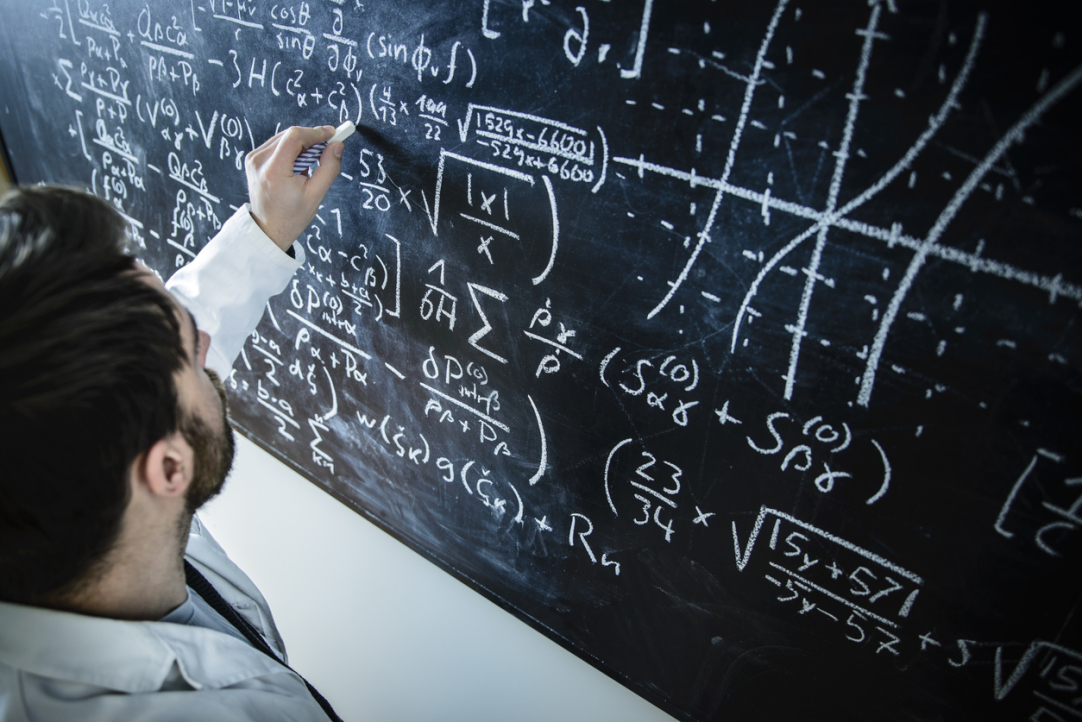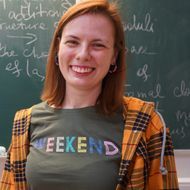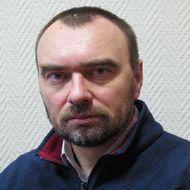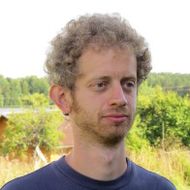HSE University Researchers to Speak at the International Congress of Mathematicians

The speakers of the International Congress of Mathematicians, a key global mathematics event held every four years by the International Mathematical Union, have been announced. The next ICM will take place in St. Petersburg, Russia, in July 2022. Five researchers from the HSE Faculty of Mathematics will present their papers at the congress.
The congress is held in various countries across different continents and is a central event in the life of the global mathematics community. Major awards for outstanding achievements in mathematics, such as the Fields Medal, are given at the ICM. The first congress took place in Zurich in 1897; in 2018, it was held in Rio de Janeiro, and now, St. Petersburg has been chosen as the location for the 2022 event. In recent decades, several thousand mathematicians from all over the world have participated each year.
Academic presentations are an essential part of the congress. Speakers are carefully selected by the Programme Committee, whose members are chosen by the administration of the International Mathematical Union. An interesting fact: the list of Programme Committee members is not announced before the ICM opening ceremony in order to avoid pressure on committee members. Being invited to speak at the congress is a major honour for any professional mathematician.

Alexandra Skripchenko, Dean of the HSE Faculty of Mathematics
The International Congress of Mathematicians is a key professional event for mathematicians from all over the world. It is a unique opportunity for academics to communicate their research results to leading experts in the field and meet their colleagues, and for beginner researchers to meet true celebrities in mathematics, attend presentations at the highest level, and probably decide on the field of their future research. We are very proud of our colleagues who were invited as plenary and section speakers. We are also actively participating in organizing the congress: some of our staff members are among the organizers of six satellite conferences, and even more will be invited speakers. Many of our students are going to be volunteers at the congress. I am very hopeful that it will be an important motivating event in their lives and will kick-start their bright academic careers.
An invitation to deliver a plenary speech at the ICM is a sign that the global academic community recognizes the researcher’s considerable global input into modern mathematics.
In 2022, the Congress Programme Committee selected 21 plenary speakers. They include two researchers from the HSE Faculty of Mathematics: Professor Igor Krichever and Aleksandr Kuznetsov, Research Fellow at the Laboratory of Algebraic Geometry and Its Applications. In addition, three researchers from the Faculty of Mathematics were invited to give sectional presentations. They are Alexander Efimov, Research Fellow at the International Laboratory for Mirror Symmetry and Automorphic Forms (in the sections ‘Algebra’ and ‘Algebraic and Complex Geometry’), Yuri Prokhorov, Senior Research Fellow at the Laboratory of Algebraic Geometry and Its Applications (in the section ‘Algebraic and Complex Geometry’) and Evgeny Feigin, Professor at the Joint Department with The Lebedev Physical Institute of the Russian Academy of Sciences (in the section ‘Lie Theory and Generalizations’).
This means that a total of five members of the faculty’s staff will be invited speakers at ICM 2022.

Yuri Prokhorov, Senior Research Fellow at the Laboratory of Algebraic Geometry and Its Applications
The congress has only been held in Russia once: in Moscow in 1966. For any university, an invitation for one of its researchers to speak at the congress reflects international acknowledgement that the university conducts mathematical research at the highest level. For a mathematician, speaking at the congress is a sign of clear recognition of their achievements. Usually, the topics of congress papers determine the development of mathematics for many years ahead, and congress materials are often cited and used for decades as a reflection of the contemporary state of mathematics.

Evgeny Feigin, Professor at the Faculty of Mathematics Joint Department with The Lebedev Physical Institute of the Russian Academy of Sciences
The International Congress of Mathematicians is a major event in the life of the international mathematical community. The papers presented at the congress describe the situation in mathematics today and outline areas for further research. The ICM attracts an impressive list of participants. For any university in the world, having an employee give a presentation at the ICM is a good way to improve its reputation as a leading research centre and increase its global visibility. It is a huge honour for me to be invited to speak at the congress. I am grateful to my colleagues for the opportunity to present the results of my research to such a distinguished audience.
Alexander Efimov
Aleksandr Kuznetsov
See also:
Scientists Disprove Bunkbed Conjecture
Mathematicians from Russia, including two HSE graduates, have disproven a well-known mathematical conjecture that, despite lacking solid proof, had been considered valid for 40 years. The ‘Bunkbed Conjecture’ belongs to percolation theory—a branch of mathematics that studies the formation of connected structures in independent environments.
'Our Mathematics Is for Far-Reaching Minds'
Anna Presnova focuses on automatic control theory, a branch of science that addresses global problems. In this interview with the HSE Young Scientists project, she talks about her aspiration to achieve practical results, the energy she gains from teaching, and why she would be interested to meet with Alexandr Lyapunov, founder of stability theory.
'It Was a Great Learning Experience for the New Generation of Mathematicians'
From November 5 to 9, 2024, HSE University hosted a five-day conference on algebraic geometry and mathematical physics, organised jointly with the Beijing Institute of Mathematical Sciences and Applications. Over 30 mathematicians from the world's leading universities, including early-career scientists, participated in the event.
HSE University Wins Two Medals at the International Mathematics Competition for University Students
Two students, one graduate and one undergraduate, from the HSE Faculty of Computer Science (FCS) programme in ‘Applied Mathematics and Information Science’ won prestigious awards at the International Mathematics Competition for University Students (IMC). Graduate Maksim Kazadaev and first-year student Daria Linichenko both represented HSE University at the IMC, winning gold and silver medals respectively.
Prepare for the INTO HSE Olympiad with HSE Students
Winners of the INTO HSE International Maths Olympiad receive scholarships and admission offers to 37 different programmes at HSE University. Angelina Yudina, a master's student and invited instructor of maths at the Faculty of Economic Sciences, offers a video lesson where she analyses the demo version of the maths problems from the Olympiad.
Immortal Cells and Mathematics Reveal Mechanism behind Coronavirus Infection
A mathematical model has helped describe the course of infection caused by two variants of coronavirus: Omicron and Delta, and explain the differences between them. It appears that the cell entry rate is lower for Omicron, allowing infected cells ample time to alert neighbouring cells of the threat and trigger the activation of their innate immune response. In the future, the developed model could be employed to investigate any other variant of COVID-19, potentially leading to effective strategies for combating new hazardous strains, such as Pirola and JN.1. The findings from the study conducted with the participation of HSE researchers have been published in PeerJ.
Mathematicians Reveal the Mechanism behind Neuron Synchronisation: Hyperchaos
Scientists of the International Laboratory of Dynamic Systems and Applications at HSE Campus in Nizhny Novgorod have described a rare case of synchronisation in a system of chemically coupled neuron models. The study findings enable a mathematical description of atypical brain functioning modes, including those associated with neurodegenerative diseases. The study has been published in Regular and Chaotic Dynamics.
‘The Joy of Science Lies in the Euphoria of Learning’
For Elena Nozdrinova, mathematics is her life's work and a realm where she discovers universal order and harmony. In her interview with the HSE Young Scientists project, she speaks about dynamical systems, the Nizhny Novgorod scientific school, and favourite pastimes that help her grow.
HSE Scientists Unveil New Findings Regarding Stability of Communication Systems
Researchers from the International Laboratory of Dynamical Systems and Applications at the HSE Campus in Nizhny Novgorod have discovered that the use of systems with hyperbolic solenoid attractors and repellers can lead to issues in the transmission of communication signals. The findings of this study have been published in Results in Mathematics. The research was financed by a substantial grant from the Russian Government as part of the 'Science and Universities' National Project and a further grant from the Russian Science Foundation.
Monsters of the Deep: HSE Scientists Have Compiled a Catalogue of Rogue Waves
Rogue waves, or killer waves, are abnormally high and deadly waves that can emerge unpredictably in open seas and along shorelines. They pose an imminent deadly threat to everyone from colossal liners and pleasure yachts to seafarers and vacationers. Scientists from the HSE campus in Nizhny Novgorod Efim Pelinovsky and Ekaterina Didenkulova have assembled a catalogue of such phenomena that occurred in the World Ocean from 2011 to 2018, identifying the areas where they are frequently documented and inflict the most substantial damage.


